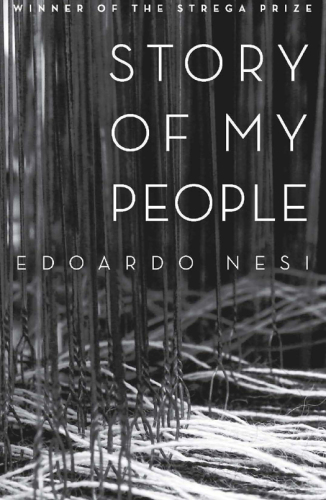
Story of My People
کتاب های مرتبط
- اطلاعات
- نقد و بررسی
- دیدگاه کاربران
نقد و بررسی

February 18, 2013
Concise yet chaotic, Italian filmmaker and translator Nesi’s slim volume, winner of the Strega Prize, describes his experience selling his family textile business in 2004 and the effect of globalization on his beloved textile-driven city of Prato. The book takes meandering turns while bearing witness to a vanishing world. Nesi inherited his family’s business and ran it for years, at one point operating a downsized version that only broke even. Though his love for his city and former occupation is clear and moving, the book lags during its many dips into Nesi’s personal musings that seem to have little to do with the book’s subject. An otherwise gorgeous chapter on visiting his old empty weaving mill, for example, has a three-page detour into what Nesi loves about music. However, the book strengthens by end, making for a searing indictment of globalization’s failures, and the inability of politicians and pundits to consider its impact on real lives. The unrelated ruminations make for confounding reading at times, but much of the book is sad, honest, and biting; overall it is an important work. Agent: Elisabetta Sgarbi, RCS Libri.

June 1, 2013
Novelist and translator Nesi's lament for the passing of the way of life that helped Italy recover from the legacy of fascism, now available in English. The book won the 2011 Strega Prize, the most prestigious literary award in Italy. Along with his brothers, the author was meant to be the third generation to lead his family's textile weaving company, founded in Prato, Italy, by his grandfather in 1920. Instead, he became the one who had to sell the company in 2004, an act that marked the conclusion of a way of life. Nesi tells the story of the rise and fall of his family's business as part of the small-business world that supplied beautifully made parts and materials for the producers of consumer and capital goods throughout Europe. The author demonstrates a rich literary verve and a novelist's passion, as literary and cinematographic references work their way into his unfolding lament. His descriptions of the materials and manufacture of the cloth--"yarn-dyed, with a KD finish, rendering its pile unalterable and capable of withstanding the assault of Germany's acid rains and morning frosts"--and designers like Sergio Carpini, "who felt he had the right to perform alchemy with fabrics," help carry the story. Nesi shows how box-store price cutting and government tax policy combined to prevent businesses from making profits and instead created "the latest and most peculiar of the Prato businessman: the non-profit entrepreneur." The author mocks economist promoters of globalization as "sorcerers and wizards and haruspices"; their predictions were wrong, and the empty mills and silent businesses of what had been part of Italy's once-thriving economy show the results. A tour de force that spares no one.
COPYRIGHT(2013) Kirkus Reviews, ALL RIGHTS RESERVED.

June 15, 2013
In this 2011 Strata award-winning book, a retrospective blended with social criticism, Italian filmmaker and translator Nesi (I Lie for a Living) poetically describes the effects of globalization on Italy's declining economy. Responding to his family's factory going out of business in Prato, Tuscany, Nesi focuses on the ramifications of China joining the World Trade Organiztion (WTO) in the 1990s and how this resulted in cheaper labor and raw materials, forcing many of the factories in the Italian textile industry to fold. Nesi's account speaks to personal loss but also to the impacts on his community. VERDICT Industry changes aren't unique to Italy--this rich narrative should appeal to economists and social scientists researching globalization, specifically the consequences of China joining the WTO.--Meghan Dowell, New York
Copyright 2013 Library Journal, LLC Used with permission.

























دیدگاه کاربران